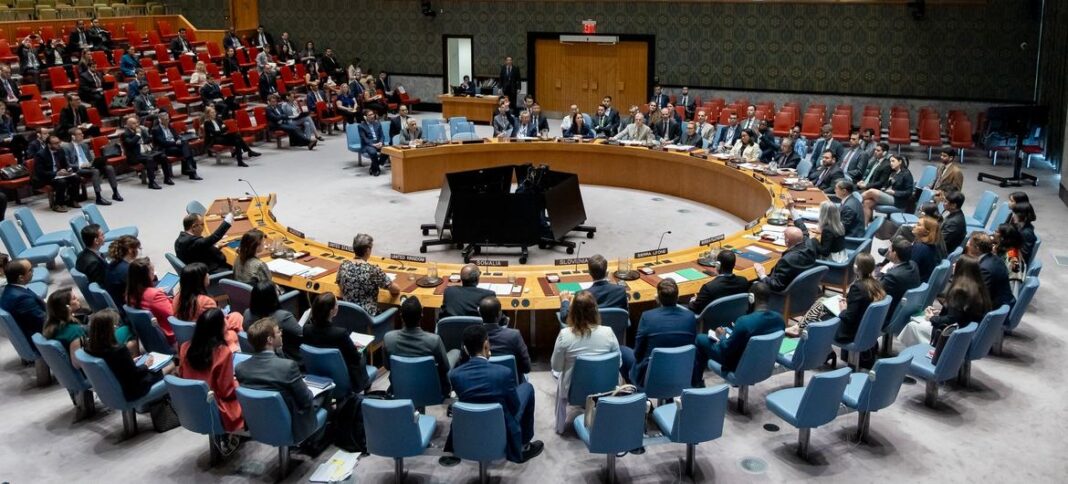- Sanctions reimpose at 0000 GMT Sunday, Sept. 28< (8 p.m. ET Saturday) after a 30-day “snapback” process initiated by the UK, France and Germany.
- Iran recalled its ambassadors to Germany, France and the United Kingdom for consultations as the deadline approached.
- A last-minute bid by Russia and China
The Big Picture
The United Nations is set to restore sanctions on Iran at 0000 GMT on Sunday after a bid to extend sanctions relief failed at the Security Council. The European “E3” foreign ministers — Britain, France and Germany — triggered the snapback mechanism last month, arguing Iran had not addressed concerns over its nuclear program. The timeline and proceedings were outlined in Security Council records.
What’s New
Iran has recalled its ambassadors from Berlin, Paris and London for consultations as the sanctions deadline nears, according to Iran’s Foreign Ministry. The E3 said in an Aug. 28 joint statement that Iran’s “significant non-performance” prompted the step and activated a 30-day window for a reversion to earlier Security Council measures, according to the E3. A late effort at the UN to delay the snapback by six months did not secure enough votes, according to the Security Council’s published record.
What They’re Saying
Context
The snapback mechanism stems from UN Security Council Resolution 2231, which endorsed the 2015 nuclear deal and allowed terminated UN measures to be restored if a party alleged significant non-compliance, according to Security Council records. The E3 said it used the mechanism after weeks of talks failed to produce a “concrete” path forward, according to the E3. Iran denies seeking a nuclear weapon and says it remains committed to the Nuclear Non-Proliferation Treaty, according to statements by Iranian officials.
What’s Next
According to Security Council records, once the sanctions go into effect, UN member states will have to impose limits on arms transfers and activities related to the spread of weapons, and they will have to freeze the assets and prevent travel of designated individuals and organizations. The E3 indicated that Iran might still use diplomacy if it deals with issues about verification and compliance. Iran’s Foreign Ministry says that Tehran will fight the move and look closely at how it is being carried out in capitals and at the UN.
The Bottom Line
Barring a last-minute breakthrough, the UN’s snapback will reset the global sanctions architecture on Iran. That will harden enforcement, complicate trade and diplomacy, and raise the stakes for any talks on inspections, enrichment limits and missiles in the weeks ahead.















